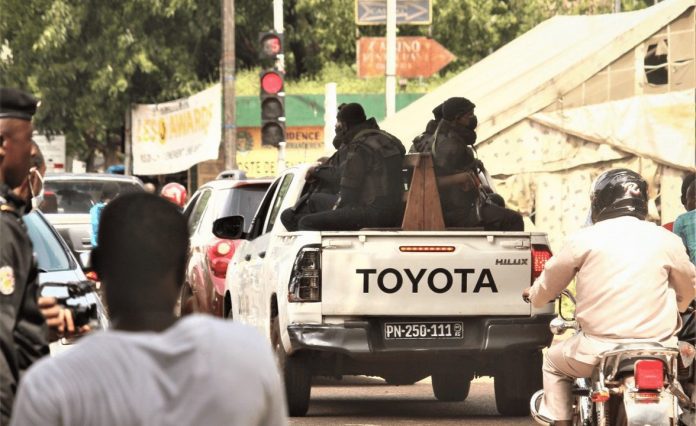Johannesburg – Despite the deposing of ex-president Alpha Conde by a military junta in Guinea, it would be wrong to herald the dawn of military coups in West Africa.
Reoccurring instability is contained to a handful of states (Mali, Guinea and Guinea-Bissau), not across the region’s 16 countries, that have different internal dynamics.
What is a real and worrying trend, however, is the consistent failure to act on the conditions that spark coups in the first place.
Conde, once a positive force for political and economic change, tarnished his record with ever increasing corruption and authoritarianism.
The last straw was a blatant act of constitutional chicanery, allowing the 82-year-old leader to run for a third term, followed by the staging of a patently fraudulent election in October 2020.
It is therefore concerning, but hardly surprising, that when the armed forces drove through capital Conakry after arresting Conde on September 5, they were greeted by jubilant crowds.
The Economic Community of West African States (Ecowas) has called for presidential and legislative elections to be held in Guinea within six months.
While the return to civilian rule is key, this short period may be insufficient to meaningfully prepare.
Twelve months seems more reasonable to make headway with the complex tasks of transition. Junta leader Colonel Mamady Doumbouya has announced intentions to form an inclusive government and consultations with political, business and religious leaders, along with diplomats, civil society and other stakeholders.
The drafting of a new constitution (to be decided on by referendum) is vital to reduce risks of future leaders out-staying their welcome. But it needs the input of all Guineans.
This is not to say that military rule is desirable. It is installed now in part due to disgruntlement in the ranks under Conde, who himself came to power in 2010 off the back of a brutal period of military dictatorship.
But military rule is the reality with which we must contend and there may be opportunities during this period to put Guinea back on track.
Conde reduced checks and balances, and created large disparities between state powers. Electoral reform is also key as, since 2010, all elections have been contested.
The transitional authorities could also prioritise issues that democratically elected leaders tend to kick into the long grass: press freedom, access to public information, strengthening anti-corruption mechanisms, sexual and gender-based violence.
Ecowas is correct to want a swift return to constitutional order, as the risk is that the “transitional” authorities become a more permanent fixture accountable to no one. It is also right to call for Conde’s immediate release from custody. If charges are brought, then a fair trial of the former leader and his circle would set a good example for Guinea’s future.
Threats of economic sanctions against the junta’s leadership and demands that members of the military cannot stand in elections are also wise.
Ecowas and the African Union are two of the few bodies that hold some leverage with Guinea as its citizens remain at the mercy of the whims of the military.
What makes it all more frustrating is that, once again, Ecowas’ condemnations and recommendations were reserved for when the country blew up, not for when it was boiling. Perhaps it should be no surprise that an organisation that includes fellow unconstitutional, term-extending leaders like President Alassane Ouattara of Ivory Coast is silent.
But this is a systemic flaw, and the organisation needs urgent internal reform.
Judicious oversight of this transitional phase can all ensure that Guineans, and all West Africans, will not get used to viewing military takeovers as the least bad option.
- Hounkpe is head of the political governance programme at Open Society Foudation in West Africa
Follow SundayWorldZA on Twitter and @sundayworldza on Instagram, or like our Facebook Page, Sunday World, by clicking here for the latest breaking news in South Africa. To Subscribe to Sunday World, click here.
Sunday World



